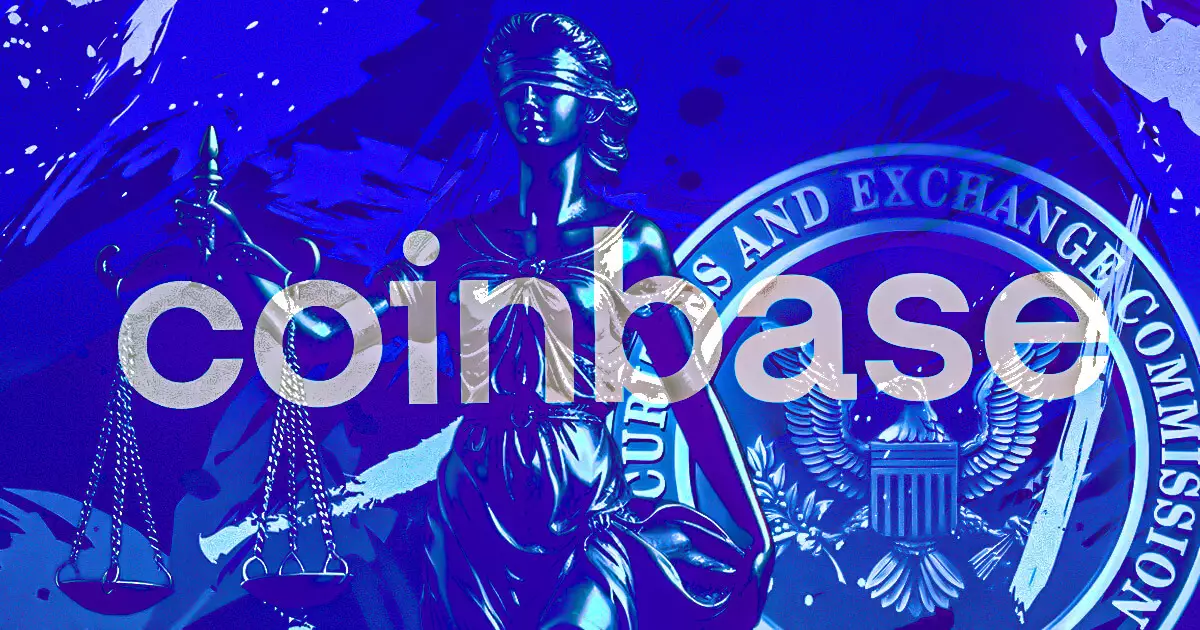In a landmark turn of events, Coinbase, a leading cryptocurrency exchange platform, has managed to strike a deal with the Securities and Exchange Commission (SEC) staff that may lead to the dismissal of a contentious enforcement case. This pivotal development has significant ramifications for the cryptocurrency market, reflected by Bitcoin’s surge above $99,000. This settlement not only ceases the immediate legal disputes but also raises critical questions about the intersection of regulatory authority and the classification of digital assets.
The legal tussle originated when the SEC aimed to compel Coinbase to delist certain digital assets that the company argued did not qualify as securities. Brian Armstrong, the CEO of Coinbase, articulated that this move exceeded the SEC’s statutory boundaries and undermined the regulatory framework intended to govern such operations. The case was not only a battle over Coinbase’s business practices but a broader confrontation regarding the fundamental principles governing the cryptocurrency landscape.
Armstrong expressed optimism, stating that he anticipated the settlement would gain Congressional approval imminently. This ratification process is seen as a necessary step to finalize the settlement, which aims for an outright dismissal of the case without any financial penalties levied against Coinbase or alterations to its operational model.
Wider Implications for the Crypto Industry
This agreement signifies more than just a legal victory for Coinbase; it represents a potential turning point for the entire cryptocurrency industry. Armstrong emphasized that this legal struggle was instrumental in establishing a regulatory landscape that is anchored in law rather than arbitrary regulatory interpretation. This perspective is critical as it signals to other companies within the digital asset space that there is a pathway to challenge the regulatory status quo without incurring debilitating legal repercussions.
The case also points to a broader debate concerning the balance between rigorous consumer protection and the need for innovation in a sector that is still in its infancy. Many industry insiders view aggressive regulatory actions by agencies like the SEC as a hindrance to market growth, arguing that a more collaborative approach could foster a healthier ecosystem for both investors and companies.
In his reflections on the case, Armstrong acknowledged the political undercurrents at play, particularly crediting former President Trump and his administration for contributing to an environment that may have facilitated this agreement. This allusion to political influence highlights the often-contentious relationship between government authorities and the evolving crypto landscape. As digital assets challenge traditional economic frameworks, lawmakers and regulators must come together to clarify their positions on these emerging technologies.
While the resolution of this legal case represents a step toward clarity, it is unlikely to resolve all uncertainties surrounding crypto regulation. Industry stakeholders are likely to insist on more definitive legislative guidance to establish an operational foundation where innovation can thrive without fear of undue regulatory burdens. This ongoing dialogue between regulators, lawmakers, and crypto companies is vital for determining how digital asset markets will evolve.
A Benchmark for Future Legal Battles
The Coinbase case serves as an emblematic moment in the ongoing struggle for regulatory clarity within the cryptocurrency domain. As both the industry and regulators continue to navigate the complexities of digital assets, this agreement may serve as a reference point for future disputes that arise at the intersection of legal interpretations and market practices.
Ultimately, as the cryptocurrency market matures, it will be crucial for both legal and regulatory frameworks to adapt in order to accommodate the innovative spirit of the sector while ensuring robust investor protection. The outcome of this legal engagement between Coinbase and the SEC reaffirms the importance of legal due process and highlights the possibilities that arise when companies challenge overreach, ultimately paving the way for a more balanced regulatory environment where both innovation and protection can coexist.

